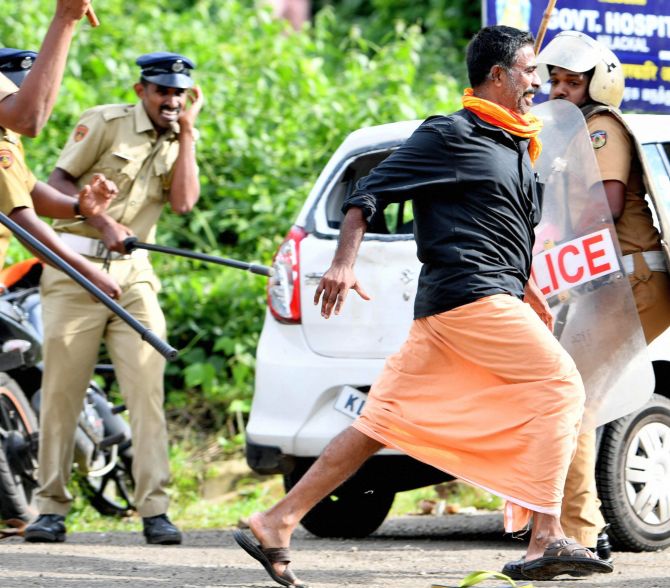
The BJP alleged that Sivadasan, 60, had died during police action against devotees last month after the landmark verdict by the Supreme Court allowing women entry into the shrine.
But police said it was an accident. They said Sivadasan's body was recovered from a forest area on Thursday.
Shops and business establishments downed shutters and buses and autorickshaws stayed off the roads in the area.
Police said Sivadasan had come to offer prayers at the hill shrine on October 18 and informed his family the following day that he was able to visit the temple.
Since he did not reach home, his son had filed a missing complaint on October 21 at police stations in Pamba and Nilakkal and at Pandalam police station on October 24.
Sivadasan's family has demanded a probe into his death.
Meanwhile, describing the BJP protest as 'unnecessary', Devaswom Minister Kadakampally Suredran said it was only to cause difficulties to the people.
Even the deceased's family has not alleged there was any foul play, he told reporters.
Noting that a 'false campaign' was on against the police, a senior official said he had died in an accident.
The BJP workers have also decided to take a 're-dedication' pledge in all assembly constituencies to protect the traditions of the temple.
They alleged that the state government was trying to 'destroy the uniqueness' of the shrine which prevents women in the age group of 10 and 50 from offering prayers.
Kerala had witnessed widespread protests by devotees after the state government made it clear that it was bound to implement the top court's verdict on entry of women of all ages into the temple.
The shrine had witnessed high drama after around a dozen women in the 10-50 age group were prevented by protesting devotees from entering it after the temple doors were opened for monthly pujas between October 17 and 22.